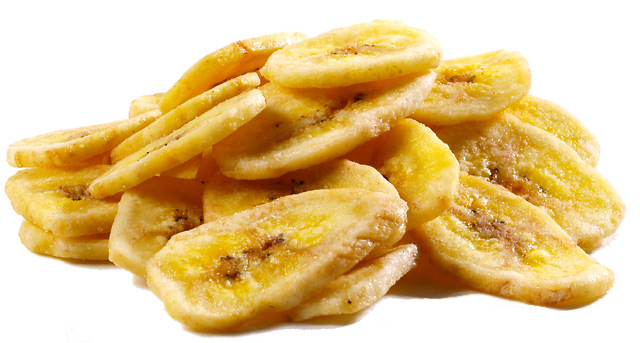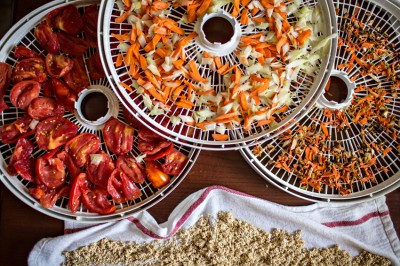Remember the day you were struggling to pack your clothes for school and your parents brought you a Ziploc vacuum storage bag and you said to yourself, “Where have you been all my life?” Well, I experienced a similar feeling the other day but it wasn’t from packing on a dreaded travel day. I stumbled upon a blog about dehydrating foods, and apparently it’s the wave of the future for healthy eating.
You read right, dehydrating food, a technique traditionally used by backpackers, truckers, and the military, has finally been recognized as a top trend.

Photo courtesy of newstarget.com
There are many reasons you should be eating dehydrated food: it prevents unwanted waste of fresh fruits and veggies, there are no preservatives or chemical additives (if you bought local or organic), the food becomes incredibly easy to store (similar to those vacuum storage bags), and the flavor of the food is enhanced and, in my opinion, great.
We are constantly being reminded via social media that to ensure happiness, one must maintain a healthy lifestyle which includes eating healthy foods, getting plenty of exercise, and sleeping regularly. Any working young person knows this isn’t always realistic, but dehydrating foods might be the hack that we’ve all been waiting for.

Photo courtesy of imgflip.com
Dani Weinstein, a fellow spoon contributor and life-long dehydrator user, says, “My family has been drying fruits and vegetables for a while now. I’m always on the move between classes, work, and other on-campus obligations, so being able to have a healthy snack without grocery shopping every couple of days has been a really really big help.”
So, why the sudden interest? Why haven’t vegans and hipsters jumped on this train sooner? Well, the truth is dehydrators aren’t exactly cheap. They can range from around $50- $500 dollars, and they definitely aren’t a staple found in your average off-campus housing kitchen.

Photo courtesy of Patriot Direct
Chefs have started to incorporate this technique into their menus, and it’s awesome. But, dehydrated foods aren’t only for gourmet meals. Consumers should look into keeping up with the trend, too.
According to DIY Naturally, investing in a dehydrator is economical because you can, “buy foods on sale or in bulk and preserve for later, save foods that would otherwise spoil, replace store-bought snacks or candy with your own healthier creations, dry your own herbs, [and] make homemade treats that you can give as gifts.”
If you’re interested in giving this trend a shot, check out this website that gives in-depth reviews of various dehydrators, innovative recipes, and handy tips.




